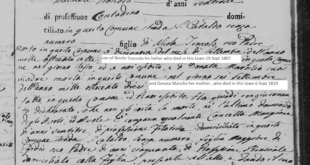 Aside from the emotional difficulties that arise when a loved one goes into some sort of care arrangement, there are often legal and financial ramifications. Remember, however, that any care arrangement is a contract and all contracts are negotiable.
Aside from the emotional difficulties that arise when a loved one goes into some sort of care arrangement, there are often legal and financial ramifications. Remember, however, that any care arrangement is a contract and all contracts are negotiable.
Every good negotiation starts with good questions. Here’s a starter list:
Have you toured the facility during off hours?
Has legal counsel reviewed the contract before you signed it?
What services are being excluded in the contract?
What provisions in the contract deal with behavior altering medications?
Does the contract limit your civil right to engage in Medicaid asset protection planning to preserve some of the last assets your loved one has for things like eyeglasses, hearing aids, and the things that make life in long-term care more tolerable?
Do you want an arbitration clause?
Does the contract require a family member to sign on as a responsible party or a guarantor of the contract?
What does the contract say about the continuation of physical therapy services?
What does the contract say about bed-hold policy for times when your loved one may leave the facility for short periods of time to visit family members?
Does the contract require deposits as a condition for your loved one to enter the facility?
Are there enough Medicaid beds available so that when your loved one runs out of money they can transition into a Medicaid bed without having to leave the facility and go shopping for another facility?
What does the contract say about readmission to a hospital?
After considering the above questions, look for the following red flags.
If your loved one’s nursing home contract contains any of the following, bring them to the attention of your legal counsel before signing the contract. They could lead to personal or financial harm to you or your loved one.
* Unclear references in the contract to services and costs.
* Provisions that require private pay for a particular duration of time.
* Contract provisions that ask you to waive liability on the part of the facility for any personal injury.
* Any provisions that may have an impact on enjoyment of personal rights and freedoms of residents.
* Any unfair transfer and discharge provisions.
* Provisions that deal with timeliness of care plans in meetings regarding care plan.
Finally, look into any opportunities there may be for resident and family councils to understand more about the facility.
A nursing home contract is one of the most complex contracts you may ever engage in.
Admission to a nursing home is also one of the most expensive financial propositions that you will ever enter in to, with costs ranging from $6,000 to $10,000 a month.
Therefore, make sure that you are adequately represented by competent legal counsel that reviews nursing home contracts regularly.
 Fra Noi Embrace Your Inner Italian
Fra Noi Embrace Your Inner Italian






